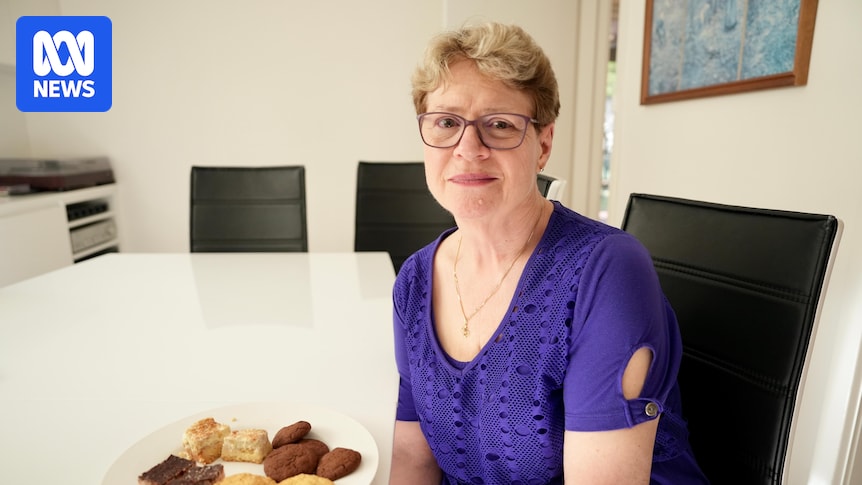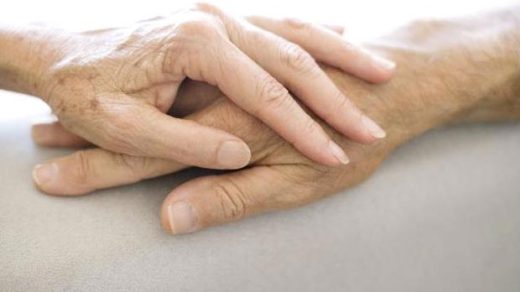‘Frustrating and disappointing’: Canberra residents with Parkinson’s disease still campaigning for a specialist nurse
In short:
People who have Parkinson’s disease live with symptoms such a tremor, stiffness, lack of balance and slurred speech.
In Canberra, they have been campaigning for a specialist nurse who would make home visits, similar to positions already working in other jurisdictions.
What’s next?
The ACT government says work is underway to create a Parkinson’s nurse position through the Brindabella Day Service at the University of Canberra Hospital, but a start date has not been confirmed.
Jenny Miragaya has good and bad days.
“When I’m off, I can’t walk. I can’t stand,” she said.
“Literally, I cannot do anything. I’m stuck, except that I do cry.“
The proud grandmother, retired midwife and keen cook was 58 when she was diagnosed with Parkinson’s disease in 2016.
She booked in to see her GP and then a neurologist after noticing her walking had slowed, her voice had quietened and her handwriting had deteriorated.
Despite watching the same disease take its toll on her father, the diagnosis came as a shock.
“It was awful, I still get teary when I think about it — I just couldn’t believe it,” Ms Miragaya said.
“I had other plans.“
Parkinson’s disease is a progressive, degenerative, neurological condition that affects a person’s nervous system and their ability to move.
It doesn’t have a cure, but medication can ease the symptoms, which can include a tremor, stiffness, lack of balance and slurred speech.
For Ms Miragaya that was exactly the case, and she revels in running a monthly support group for women in Canberra with Parkinson’s disease and singing weekly with the Bushlarks — a choir for people with the condition.
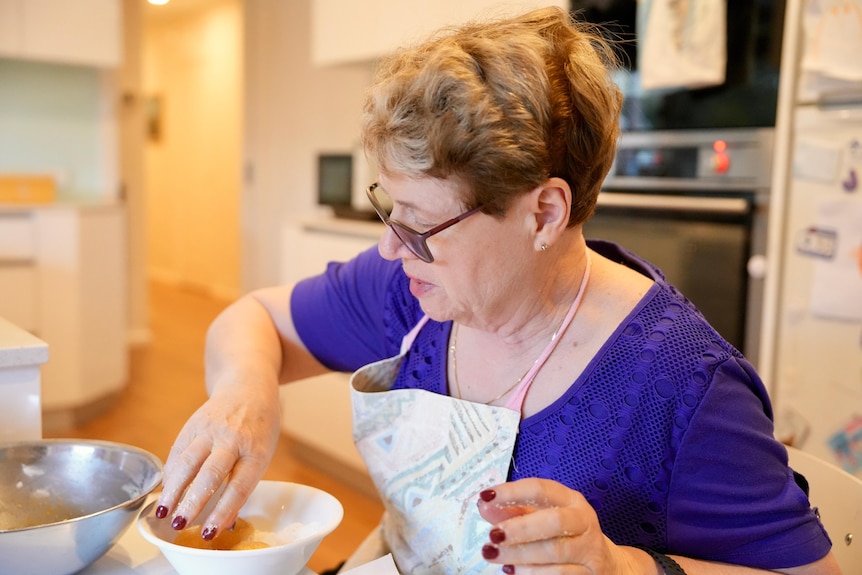
Ms Miragaya says in-home care could make all the difference as her condition progesses. (ABC News: Rosie King)
But over time her symptoms have become more severe and the efficacy of her medication has reduced.
Ms Miragaya is among those in the Parkinson’s community who have long been campaigning for the ACT government to employ a specialist Parkinson’s nurse who can visit patients at home.
Evidence shows specialist nurses who visit patients at home can significantly improve their quality of life, particularly by providing personalised care plans, medication adjustments and safety assessments.
They can also help a person to maintain their independence and delay their admission into full-time out-of-home care.
“At the moment I’m reasonably okay, but I won’t be down the track,” Ms Miragaya said.
“I will need additional support and assistance if I want to stay in my own home as independently as I can.
“And coming from a nursing background, I know how wonderful nurses can be and what they bring to a care team.”
The case for a specialist nurse
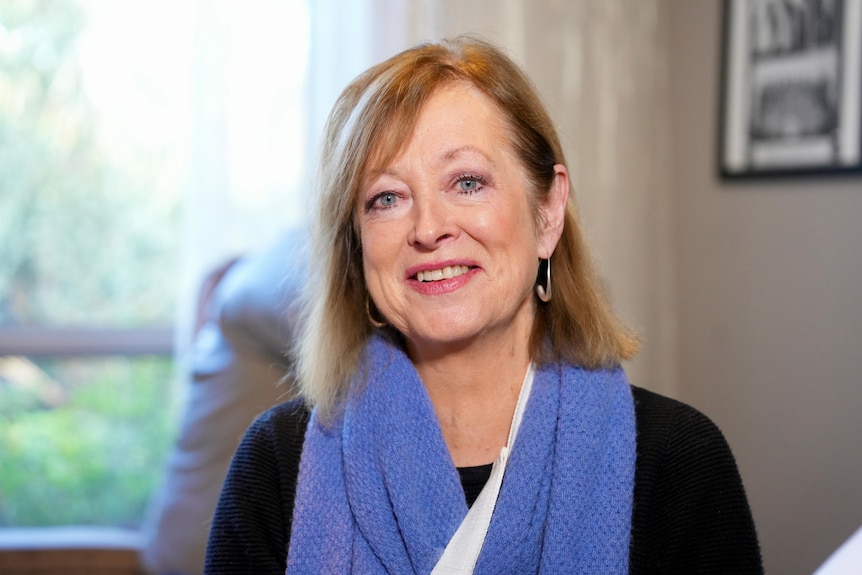
Marcia Kimball, who is the chair of Parkinson’s ACT, says a specialist nurse might have been beneficial for her husband while he still lived at home. (ABC News: Simon Beardsell)
The community push for a nurse has been going on for a decade, with the first glimmer of hope given ahead of last October’s ACT election.
It was then that Health Minister Rachel Stephen-Smith made an election commitment to expand the movement disorder centre within the Brindabella Day Service, including providing a specialist Parkinson’s nurse who would work in the community.
For Marcia Kimball, who is the chair of Parkinson’s ACT, it felt like the hard advocacy work was finally paying off.
But now, six months on from the election, she is frustrated the more than 3,000 Canberrans living with the disease are still waiting.
“The volunteers with Parkinson’s ACT have been pushing for this for at least 10 years,”
Ms Kimball said.
“It’s very frustrating and disappointing for our community that we’re still waiting.”
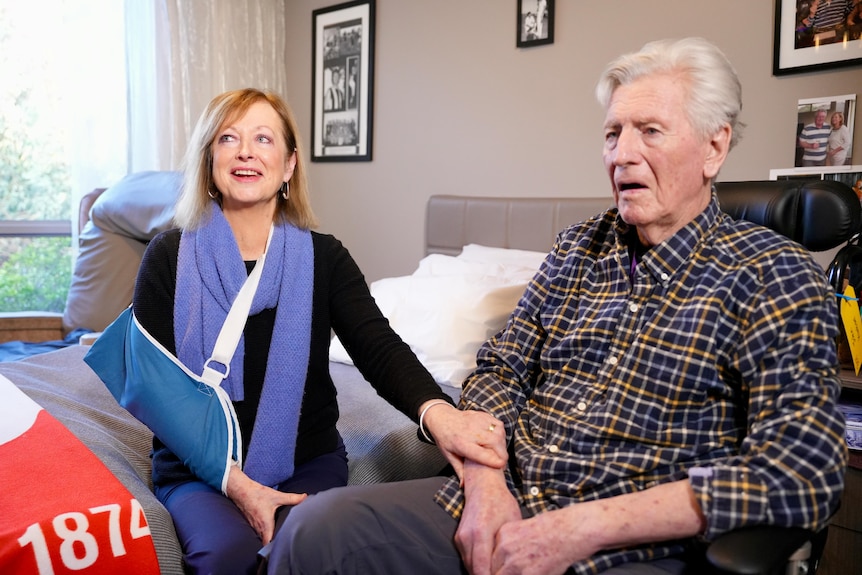
Ms Kimball has been campaigning for a dedicated Parkinson’s nurse position for the ACT for years. (ABC News: Simon Beardsell)
Ms Kimball said the ACT was now the only jurisdiction in Australia where people with Parkinson’s can’t access a specialist nurse at home through the public health system.
“They have five nurses in South Australia and South Australia is probably three times our population,” she said.
“All we’re asking for is one, which we don’t believe is even enough — it’s not a lot of money in the scheme of things.”
The challenge of in-home care
Ms Kimball’s husband John was diagnosed with Parkinson’s disease in 2008 after showing signs of rigidity, a slight tremor, apathy, and an overall slowing down.
He has been in full-time residential aged care since 2022.
Ms Kimball can’t help but wonder how much longer her husband could have remained in the family home had he had access to home visits from a specialist nurse.
“It can really help keep people in the home — nurses can advise on medication, symptoms management, counselling for family and carers, referral pathways in the health system,”
she said.
“With Parkinson’s, there’s a lack of mobility so it can be really hard on carers and the people living with the disease to go out to clinics.
“So, having someone come to you really is invaluable.”
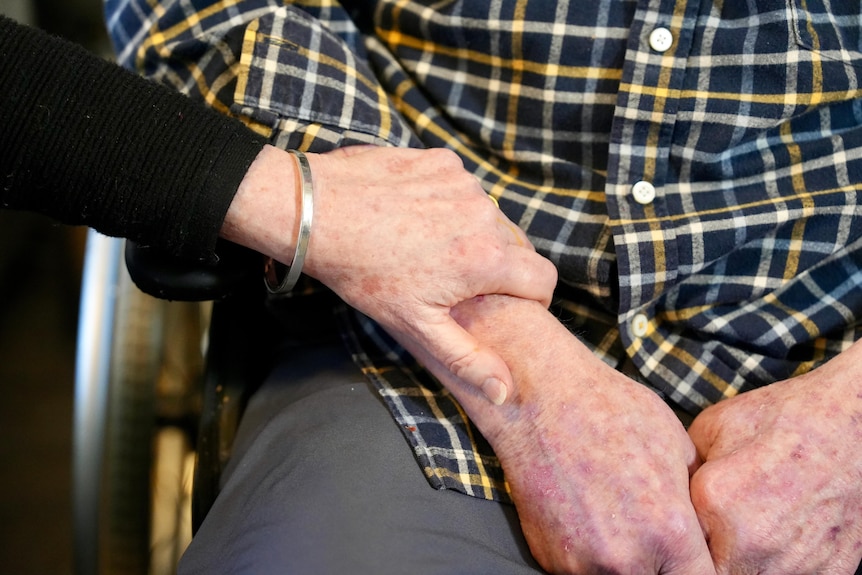
Ms Kimball has been motivated by her husband John’s experience living with Parkinson’s. (ABC News: Simon Beardsell)
No timeline on start-date
Ms Stephen-Smith said she was still committed to delivering on her election promise.
“Absolutely, we are establishing a Parkinson’s nurse through the Brindabella Day Service at the University of Canberra Hospital and work is underway to do that,”
she said.
But when pressed for a timeline, the minister failed to provide one.
“Canberra Health Services is working to set up that model to ensure that we get it right and that means working with the community as well and recruiting the advance practice nurse to undertake that work,” she said.
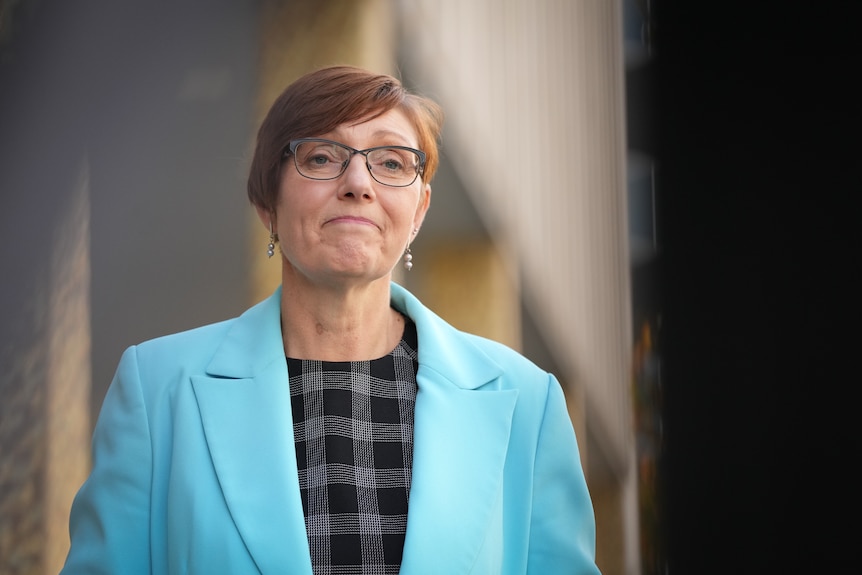
ACT Health Minister Rachel Stephen-Smith says the specialist nurse will operate out of the Brindabella Day Service. (ABC News: Matt Roberts)
Ms Miragaya said she can’t help but feel “discriminated against” by the lack of action.
“These are my people now — I’m a Parky — so to keep me well at home, I may need some additional supports and that may mean I need a nurse to come and assess my home, my safety, my ability to cook or clean or dress or shower,” she said.
“Whatever I need, it should be readily available for me to access, but not if you’ve got Parkinson’s.”
